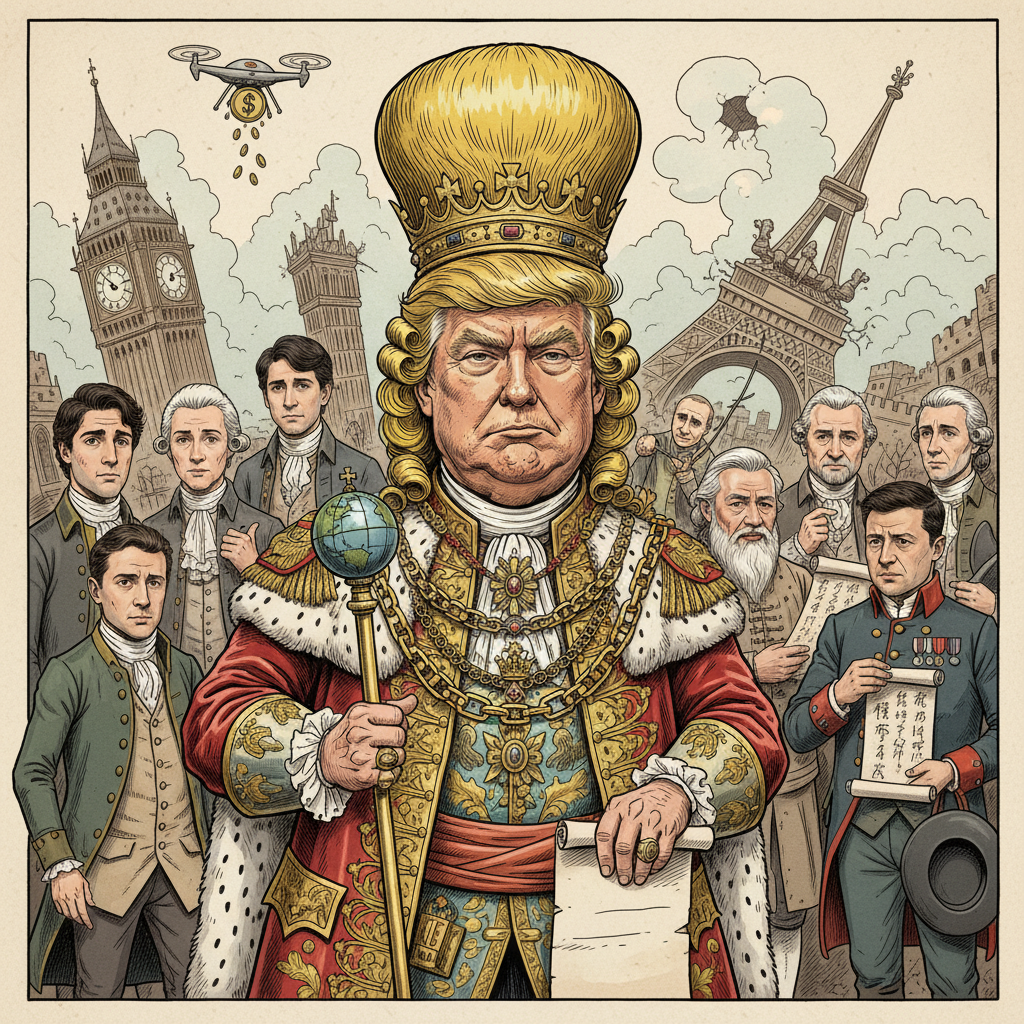President Donald J. Trump engaged in a direct, unscheduled dialogue with Russian President Vladimir Putin this week, an exchange that precedes a scheduled meeting with Ukrainian President Volodymyr Zelenskyy.
Details:
- The conversation between the American and Russian executives occurred without the customary pre-briefing of allied nations or the explicit consultation of relevant congressional committees, departing from established diplomatic conventions.
- Sources familiar with the administration's internal deliberations, speaking on condition of anonymity, indicated that the President views such bilateral discussions as an exercise of "the King's Own Diplomacy," a term historically associated with the unfettered discretion of 18th-century monarchs to conduct foreign affairs without the impedance of legislative bodies or colonial assemblies.
- This opaque method of engagement, notably absent of public communiqués detailing the substance of the exchange, bears a striking resemblance to the manner in which critical directives from the British Privy Council were often conveyed to colonial governors, frequently without the prior knowledge or consent of the various provincial legislatures they ostensibly governed.
Why it Matters:
This pattern of executive action, wherein crucial foreign policy maneuvers are conducted through channels deliberately opaque to traditional oversight and international partners, evokes a particular discomfort for those conversant with the foundational grievances of the American republic. The assertion of an executive prerogative so expansive as to bypass established diplomatic protocols and legislative input resurrects the specter of a governance structure against which the very notion of American self-determination was forged. Such practices, once decried as "taxation without representation" in the realm of economic policy, now manifest as "diplomacy without representation" in the arena of global security, subtly eroding the democratic consent that underpins legitimate governance and alliance structures.
